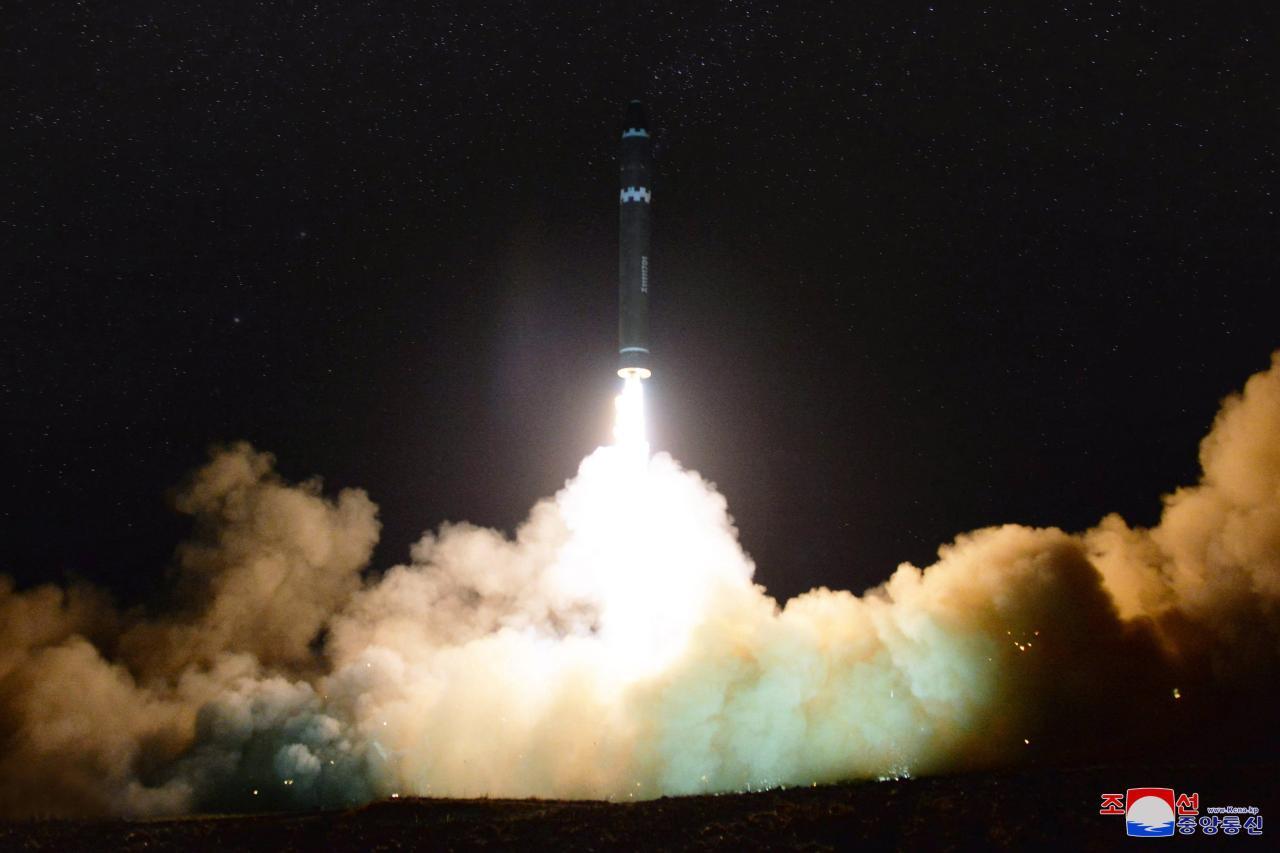 |
File photo (KCNA-Yonhap) |
New satellite images show recent activity at a previously undeclared facility near Pyongyang that US researchers suspect is being used to build nuclear warheads, CNN reported Wednesday.
The US news network said the imagery it obtained shows the facility in the village of Wollo-ri near Pyongyang “has not been previously disclosed to the public and is believed to be linked to North Korea’s nuclear program and remains active.”
The facility shown in the satellite images, captured by Planet Labs and analyzed by experts at the Middlebury Institute of International Studies, “has all the signatures of a North Korean nuclear facility -- security perimeter, on-site housing, monuments to unpublicized leadership visits, and an underground facility,” Jeffrey Lewis, a professor at the Middlebury Institute of International Studies, which specializes in open-source intelligence, was quoted as saying by CNN.
“The big thing that sticks out is all the vehicle traffic -- cars, trucks, shipping containers. The factory is very active. That activity has not slowed down -- not during negotiations and not now. It’s still making nuclear weapons.”
Researchers at the James Martin Center for Nonproliferation Studies, an MIIS affiliate, had identified the facility in 2015, but Lewis and his fellow researchers decided not to publicize it as they could not identify its specific role within North Korea’s nuclear program.
A North Korea expert named Ankit Panda who works for the Federation of American Scientists, however, wrote in his book “Kim Jong Un and the Bomb” that the facility is thought to be primarily associated with manufacturing warheads and could also serve as a storage location for those weapons should North Korean leader Kim Jong-un need to disperse his stockpile “for better responsiveness in a crisis.”
“We’d been looking at this site for a long time and knew it was associated with the nuclear program. When Ankit Panda asked me if we knew about a site near someplace called Wollo-ri that was involved in making nuclear weapons, it all clicked,” Lewis was quoted as saying by CNN.
“The site is distinguished by a strong security perimeter and what appears to be several high-rise residential buildings on site (next to a tree-lined pond),” Lewis and fellow researchers Catherine Dill, David Laboon and David Schmerler wrote in their report.
“North Korea tends to emphasize the construction of better housing as a perk for scientists and technicians involved in the nuclear and missile programs. Placing that housing on site and within a security perimeter separates the personnel at the facility from the neighboring community,” they wrote.
“Moreover, although there are monuments at the Wollo-ri site that indicate leadership visits, we find no state media reports on any such visits. These are all characteristics of other DPRK (North Korea) nuclear facilities.”
The site is set against a hillside substantial enough to accommodate an underground facility and is extensively terraced, Lewis and his team wrote, adding that a number of buildings could serve as entrances to such a facility.
On Tuesday, US Defense Secretary Mark Esper described North Korea and Iran as “rogue states” that conduct aggressive activities, a term Pyongyang has strongly protested.
The US Department of Defense has “deterred aggressive activities perpetrated by rogue states such as North Korea and Iran, as well as near-peers such as Russia and China,” he said in a video message released Tuesday to thank members of the US forces for their contribution to implementing the National Defense Strategy.
Esper used the word “rogue” to refer to North Korea and Iran in February as well as in December.
After US Secretary of State Mike Pompeo used the word in August last year, North Korea’s First Vice Foreign Minister Choe Son-hui warned the US not to test Pyongyang’s patience if it didn’t wish to have “bitter regrets afterwards.”
By Kim So-hyun (
sophie@heraldcorp.com)







![[Today’s K-pop] Blackpink’s Jennie, Lisa invited to Coachella as solo acts](http://res.heraldm.com/phpwas/restmb_idxmake.php?idx=644&simg=/content/image/2024/11/21/20241121050099_0.jpg)
